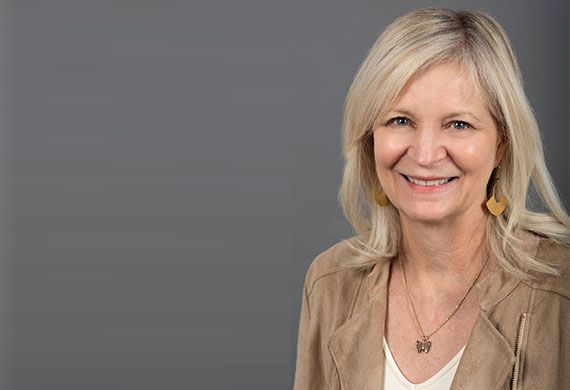The field of pediatric cardiology, like several other areas in healthcare, faces numerous challenges ranging from diagnosis to providing quality care in resource-limited settings and developing innovative treatments for complex congenital conditions. Despite advancements, many children still lack timely, effective care due to unforeseen factors, emphasizing the need for continuous efforts to improve safety, quality, and outcomes.
Dr Kathy Jennifer Jenkins has made significant strides in addressing these challenges at Boston Children’s Hospital and beyond. With over four decades of experience as a healthcare provider and clinical researcher, she specializes in pediatric cardiology and cardiovascular disease. Dr Kathy’s work focuses on advancing care delivery, fostering collaboration, and driving innovation to improve healthcare outcomes for children worldwide. Among her notable achievements, she pioneered a specialized program for a rare and life-threatening condition and founded the International Quality Improvement Collaborative (IQIC) to enhance care for children with congenital heart disease globally.
What key influences from your early years and education led you to pursue healthcare and specialize in pediatric cardiology?
My parents have been the most influential figures in my life, especially my mother who worked as a nurse. She often shared stories about her experiences at the hospital, and as a child, those stories fascinated me.
Growing up, I had the opportunity to visit her workplace and see medicine through her eyes. Those experiences ignited my interest in science and inspired my ambition to become a physician, an aspiration that stayed with me throughout my childhood and led me to pursue higher education in the same field.
I earned a scholarship to Colgate University, where I majored in chemistry. Medical school felt like a natural progression, and I was fortunate to gain admission to Harvard Medical School. There, I discovered my passion for pediatrics. I stayed in Boston after medical school and trained at Boston Children’s Hospital, where I was introduced to pediatric cardiology. The potential to save lives and treat congenital heart diseases deeply inspired me, leading me to specialize in this field.
During this time, experienced professors and mentors guided me, shaping my career. While pediatrics was clinically focused, I was determined to practice at the highest level. As the landscape for children with heart disease evolved, I was drawn to the groundbreaking work in the field and decided to specialize in pediatric cardiology.
After completing my training, I worked in India, where I witnessed the challenges of pediatric cardiology in resource-limited settings. This experience motivated me to find ways to improve access to quality care, leading to the creation of IQIC, an initiative aimed at improving the quality of care for congenital heart disease. Today, IQIC supports over 60 programs in 25 countries, including more than 10 in India, helping healthcare teams provide better care for children with heart conditions.
I am proud of the strides we've made, but the work CONTINUES, AS THERE are still too many children without access to life-saving care, and that is a challenge I am committed to addressing
What are the key areas of expertise you have developed throughout your career?
During my training in pediatric cardiology, I also pursued a Master of Public Health at Harvard School of Public Health. One key area of expertise I developed is in pulmonary vein stenosis, a rare and life-threatening condition in infants. When I first encountered it, it was poorly understood, as most pediatric cardiology conditions are congenital, whereas pulmonary vein stenosis worsens after birth.
My involvement began when a critically ill infant under my care underwent surgery, only to return in crisis weeks later. A surgeon discovered material blocking the pulmonary veins, which was later identified as a type of myofibroblastic cell. Over the past two decades, my team and I have developed targeted treatments, pioneered the use of innovative medications, and worked to uncover the underlying causes of this disease.
Our specialized pulmonary vein stenosis program at Boston Children's Hospital has significantly improved outcomes for affected infants. Once with poor survival rates, we now achieve a five-year survival rate of about 70 percent.
Introduce us to Boston Children's Hospital and its modus operandi for achieving positive patient outcomes.
Boston Children's Hospital is a comprehensive center for pediatric health care and one of the largest pediatric medical centers in the United States. It offers a full range of health care services for children from birth through young adulthood. Renowned worldwide, it is consistently recognized as one of the premier pediatric institutions.
Having worked here for many years, I can confidently say that Boston Children's excellence stems from two key strengths.The first is its exceptional nursing leadership. At Boston Children's hospital, nurses are not only skilled professionals but they work tirelessly to collaborate closely with families to ensure that each child receives care tailored to their unique needs.
The second is the hospital's commitment to innovation. Physicians here don’t just practice medicine as it is but constantly strive to improve it. It encourages initiatives, whether it’s pioneering the use of new treatments, or exploring cutting-edge technologies like artificial intelligence to improve outcomes.
What major challenges do you encounter as a healthcare practitioner? How do you overcome them?
A major challenge I’ve faced as a healthcare practitioner is gender bias, especially in male-dominated environments. Despite women holding prominent roles, the pace of promotion and recognition often favors men. Over the years, I have noticed that strong women who assert themselves or present challenging ideas are often perceived negatively. If they speak out, they are labeled as difficult, and if they take a softer approach, they risk being overlooked.
I believe it’s important to address these issues openly. As more women share their experiences, there is a growing understanding of the biases we face.
What have been your biggest professional wins? What is your success mantra?
I’m proud of my academic achievements, including becoming a full professor at Harvard Medical School at a young age and advancing research in surgical outcomes. I also built a successful patient safety and quality program at my hospital and led national initiatives in professional societies like the American Academy of Pediatrics and the American College of Cardiology. Additionally, I led the Congenital Heart Public Health Consortium, which aimed to improve the health of people with congenital heart disease in the U.S.
My success mantra is empowering others. I believe in recognizing and elevating the potential in those around me, whether it's patients, families, or teams. By supporting and enabling others to lead, we achieve greater success and broader impact.
Dr Kathy Jennifer Jenkins, Pediatric Cardiologist, Boston Children’s Hospital
Dr Kathy Jennifer Jenkins is a pioneering pediatric cardiologist focused on improving outcomes for children with complex heart conditions through innovative programs and global initiatives.
🍪 Do you like Cookies?
We use cookies to ensure you get the best experience on our website. Read more...
Copyright © All rights reserved. Global Woman Leader



.png)
